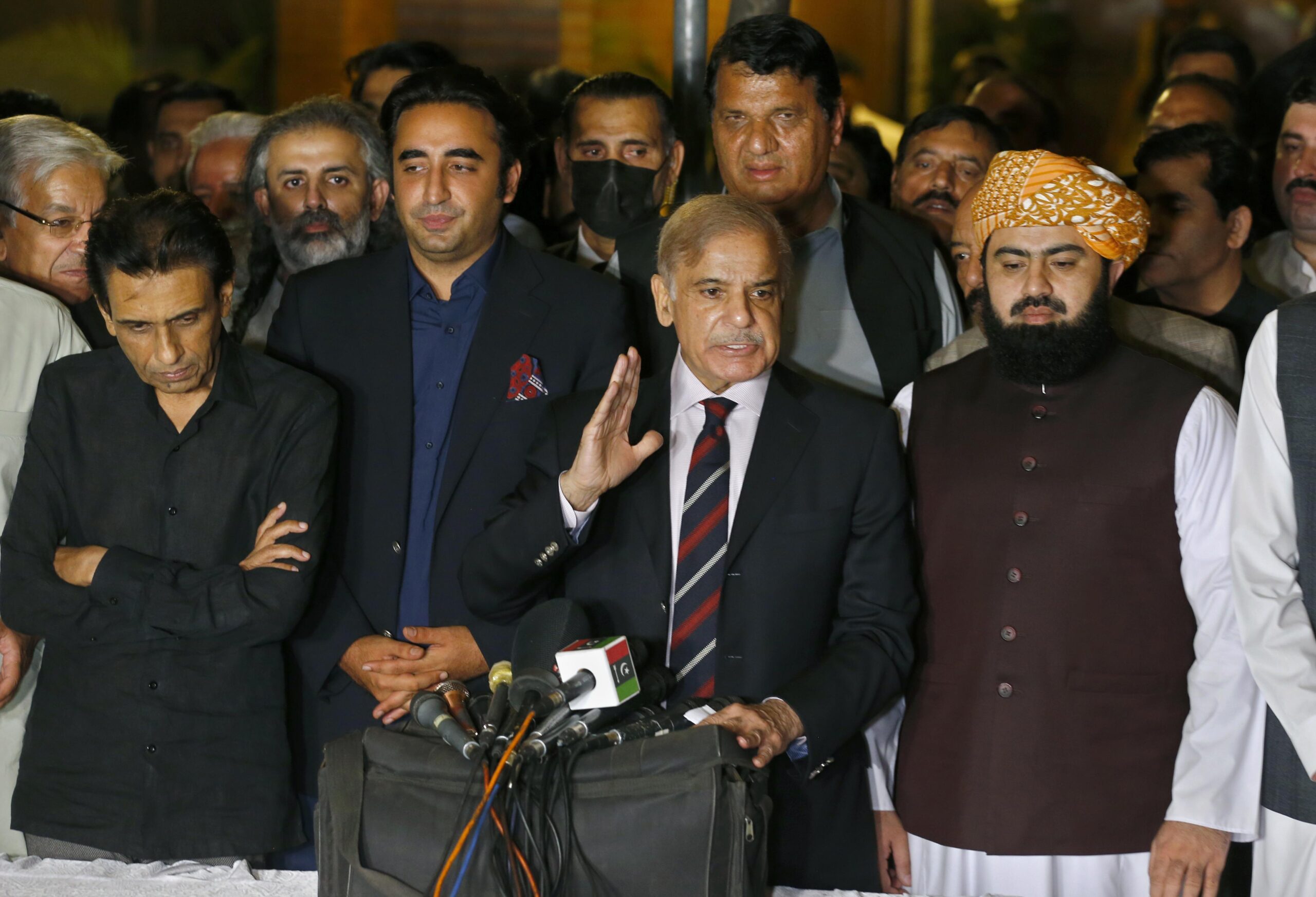
The South Asian subcontinent is sizzling under high temperatures caused by climate crisis but so is Pakistani politics. How the coalition government fares over the next few months, however, is still to be seen.
According to commentator and columnist Fahd Hussain, “The coalition government has decided in principle that it will not opt for early elections. A consensus has developed over the last fortnight that it makes political sense to let the assemblies complete their full five-year term, or at least as close to it as possible. This assessment is based on a number of factors, one of which is the populist wave generated by former prime minister Imran Khan ever since his ignominious ouster from power earlier this month. In the government’s calculation, pushing the elections into next year will provide them greater options to deal with the threat posed by the PTI.”
Hussain notes that “These options to deal with the PTI include the ploy to tire him out. The logic is that it will be difficult for Khan to sustain the momentum he has generated through three big rallies. Keeping the streets burning with anger is a tough task, as the former opposition knows well. The government feels the longer it can stretch the time till elections, the greater the energy and resources that Khan will have to expend in order to keep his party cadre and support base mobilised. This may also force him to take rash decisions that can backfire. The government can afford to wait. It has plenty of power to exercise and largesse to distribute. It is in an advantageous position and therefore will keep goading Khan to lash out till he tires out.”
Further according to Hussain, “Time also buys the government the prospects of unearthing more stories of wrongdoings committed during the PTI reign. While the Toshakhana scandal and tales of the former first lady’s friend Farah Gujjar and her supposed millions earned through dubious means are filling the airwaves, government sources say a treasure trove of more such material will soon emerge from files in the Punjab government secretariat. The government is waiting for Hamza Shehbaz to be sworn in and the cabinet formed before such evidence is shovelled out of cupboards and computers and presented to the public, sprinkled with a generous dose of political garnishing. Some of this material will be used for undercutting the PTI narrative of honesty and clean governance while some of it that has greater evidence that can hold in court will be transformed into actual cases.”
Importantly, as Hussain points out, “The government also wants to appoint the next army chief in November. It is in no mood to risk an election before that and neither does it want to let a caretaker set-up make this crucial selection. This appointment is seven months away which means that the government has enough time to stabilise the situation in order to go through with the appointment process in a routine manner. The intent is to make the process and selection as non-controversial as possible. This will of course require not just deft handling but also mature signalling that suggests that the government does not want to rock the boat at a time when the political waters are already a bit choppy.”
In conclusion Hussain notes “The government knows well any type of collision does not suit its interests, but does so for the PTI. How can the government avoid it, and how can the PTI force it will become a key determinant of which way the situation heads.”
![]()





